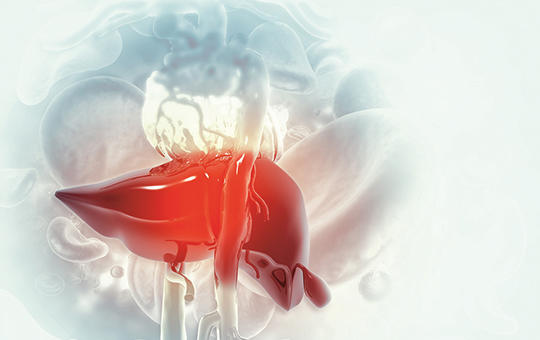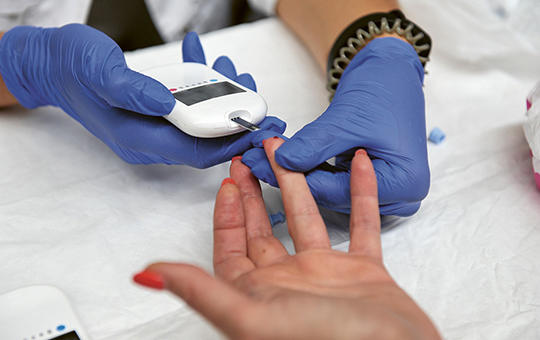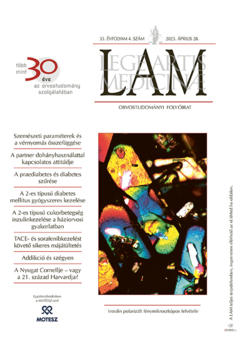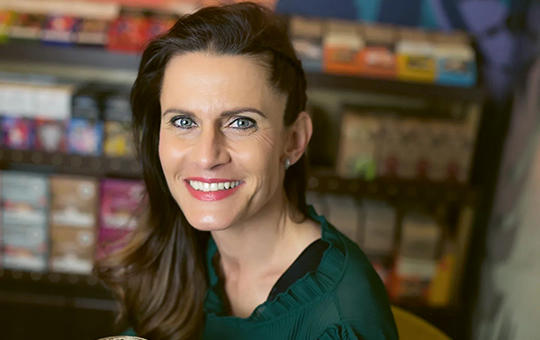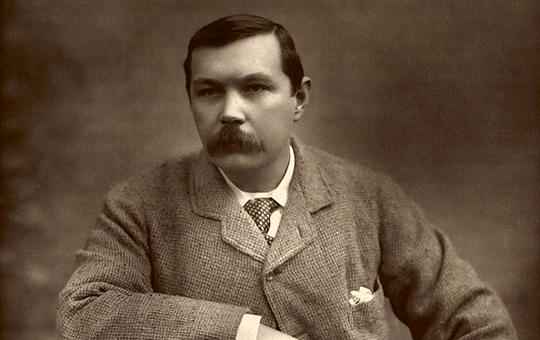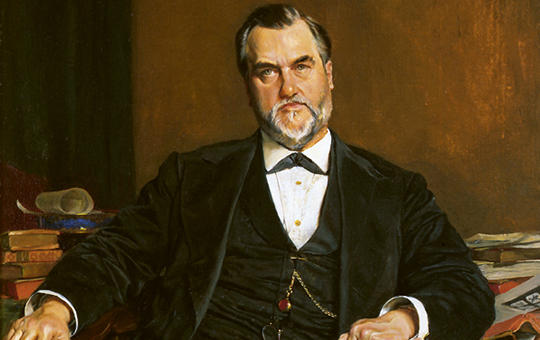The eLitMed.hu medical portal uses computer cookies for convenient operation. Detailed information can be found in the Cookie-policy.
Lege Artis Medicinae - 2023;33(4)
Content
[Correlation between ophthalmic parameters and blood pressure in Hungary’s Comprehensive Health Protection Screening Program 2010–2022. A cross-sectional preliminary study ]
[The aim of the article is to compare the blood pressure values of the persons examined within the framework of Hungary’s Comprehensive Health Protection Screening Program (MÁESZ) between 2010 and 2022 with the intraocular pressure values, the occurrence of dry eyes and refractive errors.
During the screening tests, blood pressure was measured in 168,522 people (91,109 women and 77,413 men), eye pressure in 139,866 people (74,217 women and 65,649 men), dry eye test was performed in 63,215 people (32,917 women and 30,298 men), and in 94,618 people (50,178 women and 44,440 men) the refraction value of the eyes was measured.
In both sexes, the intraocular pressure increases parallel to the blood pressure value, as its severity increases. Dry eye occurs more often in women and is independent of the current blood pressure value. In parallel with the severity of blood pressure, the rate of occurrence of hypermetropes (far-sighted) increases and the rate of occurrence of myopes (short-sighted) decreases.
Based on our analysis, special attention should be paid to the ophthalmic associations of hypertension; in individuals with elevated blood pressure, a regular basic ophthalmological examination is recommended.]
[Normative attitude of the romantic partner towards using tobacco: what and how do we measure in research? – Scoping review]
[Fighting tobacco smoking there is a key priority to support the cessation. Previous research outcomes suggest that the smoker’s romantic partner may have an influence on this cessation. The aim of this study is to explore methods published in the literature that assess the partner’s perceived or real normative attitudes in the adult smoking domain.
Based on the PRISMA-ScR protocol for scoping-reviews, we have identified English-language publications that examined the partner’s normative attitudes toward smoking by using a Boolean search strategy in PubMed, Scopus, and Web of Science databases.
Among 57 identified publications, seven were selected for inclusion. Out of these seven studies, six targeted quitting intention as an outcome; another six studies used the Theory of Planned Behaviour model; five studies measured specifically the perceived normative attitudes of the partner, but none of them measured the partner’s real attitudes.
Although normative attitude of the partner may play a role in supporting cessation, this is currently a not-researched area in health psychology additionally the associated social psychological mechanisms have not been explored yet. Given its theoretical grounding, further research is recommended.]
[Successful liver transplantation of a patient with hepatocellular carcinoma after reduction of tumour size by TACE and sorafenib treatment. Successful interdisciplinary collaboration]
[We present an instructive case of a long surviving female patient with primary liver cancer. She received transfusion during appendectomy, and 9 years later HCV positivity was diagnosed. That time the antiviral treatment did not succeed and liver cirrhosis developed. 24 years after the presumed HCV infection, hepatocellular carcinoma was diagnosed as a solitary tumour of the liver. Following two cycles of transarterial chemoembolization (TACE), during the exploratory laparotomy the tumour proved to be non-resectable because of the malign hepatic hilar infiltration. Considering this, the multidisciplinary oncoteam recommended sorafenib treatment. The patient received sorafenib for 2.5 years that she well tolerated, and the tumour became smaller. After this, another TACE treatment was performed and the patient became suitable for liver transplantation. By the applied bridging therapy, after two unsuccessful donor calls, the liver transplantation was successfully performed. Long survival was finally achieved by the liver transplantation that solved both the cirrhosis and HCC conditions. By the newer direct-acting antiviral drugs, the patient became permanently HCV negative, and she is currently under hepatological care only. This case is a best example for possible tumour reduction and liver transplantation in inoperable hepatocellular carcinoma (HCC). We emphasise the importance of interdisciplinary collaboration while caring for patients with HCC. It is essential to delegate the patients to facilities where the full range of potentially relevant treatments, as well as the follow-up and care of the underlying liver disease are available.]
[Screening for prediabetes and diabetes]
[Type 2 diabetes is a complex metabolic disease that requires almost continuous health care with multidisciplinary approach to prevent and treat the micro- and macrovascular complications. Slowing down this progress is only possible by using cost-effective targeted screenings, starting diabetes care and treatment on time. The definite cost-effectiveness of FINDRISC screening and its ability to get an early diagnose and treatment, resulting in a positive effect on the patients’ quality of life and the working capacity suggests to implement it in primary care nationwide, even with extra funding.]
[Treatment of type 2 diabetes mellitus – oral and fixed combination therapy]
[The purpose of treating both type 1 and type 2 diabetes is to avoid acute and chronic disease specific complications for providing optimal quality of life of patients. This is viable by earliest and individually tailored lifestyle and pharmaceutical treatment while concerning also the heterogeneous nature of the disease, the underlying pathophysiological processes as well as the patients’ individual social situation. Today, with all modern therapeutic options and without risk of hypoglykaemia there is a greater chance by stricter target values than a decade or two ago.
The possibility of avoiding clinical inertia is largely in the hands of family physicians, since they know their patients the best with their illnesses and life situations, and they follow them through many years. They delegate the patients to specialist care and it is their responsibility not to lose time until starting the appropriate therapy.
The most recent international and Hungarian recommendations about pharmaceutical and non-pharmaceutical treatment provide a comprehensive guide of all options. This overview presents some specific medicines and drug classes currently available. As for GPs it is important to put on right place these modern and less modern drugs along the therapeutic spectrum and recognize the criteria of therapeutic choices for delegating the patients in a direct way and at the right time to the specialist care.]
[Insulin therapy of type 2 diabetes in general practice]
[Insulin treatment is essential for survival of type 1 diabetes patients. Some people with type 2 diabetes, may also need insulin administration alongside with “non-insulin drugs” to ensure their good metabolic status. Insulin therapy has rapid and high impact, however with potential side effects, thus proper indication is the cornerstone of its use. In this review we ponder specific considerations for making proper decisions about introduction of insulin therapy. Further we summarize the number of insulin preparations and delivery systems available for specific treatment. There are discussed also the advantages of analogue insulin preparations contrasted to human ones. We present patient characteristics and therapeutic options for designing the treatment. All decisions should be made by consent of our patients. During the introduction of any insulin therapy, developing of the patient's self-management skills (DSMES) is particularly important.
GPs play a pivotal role in selecting and delegating insulin dependent patients to the specific facilities and later supporting them in the follow-up. We aim to provide GPs with up-to-date and comprehensive information, and try to underline how they can contribute to the care of their diabetes patients. Finally we emphasize the most important features of collaboration with diabetes secondary care centers.]
[Addiction and shame ]
[Addiction medicine has been professionalizing since the middle of the 20th century and has become an independent medical specialty. The paper presents the process by which shame has been emerging in the agenda building. The author reveals the efforts aimed at the cooperation of recovering addicts, professionals, researchers and political decision-makers. Main trends are demonstrated in the light of addictive family dynamics, the shame management innovations of Alcoholics Anonymous (AA), the historical process of changing the threshold of shame and the expansion of addiction into a public policy issue. ]
1.
Clinical Neuroscience
Is there any difference in mortality rates of atrial fibrillation detected before or after ischemic stroke?2.
Clinical Neuroscience
Factors influencing the level of stigma in Parkinson’s disease in western Turkey3.
Clinical Neuroscience
Neuropathic pain and mood disorders in earthquake survivors with peripheral nerve injuries4.
Journal of Nursing Theory and Practice
[Correlations of Sarcopenia, Frailty, Falls and Social Isolation – A Literature Review in the Light of Swedish Statistics]5.
Clinical Neuroscience
[Comparison of pain intensity measurements among patients with low-back pain]1.
2.
Clinical Neuroscience Proceedings
[A Magyar Stroke Társaság XVIII. Kongresszusa és a Magyar Neuroszonológiai Társaság XV. Konferenciája. Absztraktfüzet]3.
4.
Journal of Nursing Theory and Practice
[A selection of the entries submitted to the literary contest "Honorable mission: the joys and challenges of our profession" ]5.
Journal of Nursing Theory and Practice
[End of Life and Palliative Care of Newborns in the Nursing Context]




